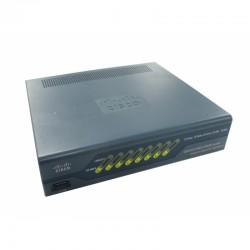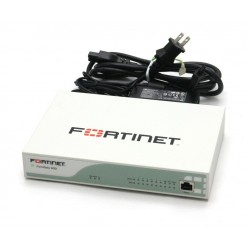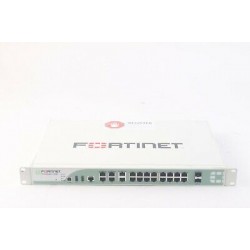What is a firewall and what protection should I use | Cisco, Fortinet, Juniper
What are Firewalls?
Firewalls are a type of security system designed to protect computer networks from unauthorized access and malicious attacks. Essentially, a firewall is a barrier between a private network and the public Internet, which helps to block unauthorized traffic from entering the web and also prevents sensitive information from being leaked out.
Firewalls typically operate by examining incoming and outgoing network traffic, and then making decisions about whether to allow or block that traffic based on a set of predefined rules. These rules can be configured to allow or deny traffic based on a variety of factors, including the source and destination of the traffic, the type of traffic (e.g. web traffic, email traffic, file transfers), and the content of the traffic (e.g. specific keywords or patterns).
Firewalls can be implemented in different ways, including as software applications installed on individual computers, or as dedicated hardware devices that are placed between the network and the Internet. Some modern firewalls also use advanced technologies such as machine learning to help identify and block new and emerging threats.
Types of Firewalls?
There are several types of firewalls that can be used to protect computer networks.
Packet-filtering firewalls:
These firewalls examine individual packets of network traffic and determine whether to allow or block them based on predefined rules. This is the simplest and most basic type of firewall, but it can be less effective against sophisticated attacks.
Stateful inspection firewalls:
These firewalls examine not just individual packets, but also the context and state of the entire network connection. This allows them to make more informed decisions about whether to allow or block traffic and can help prevent attacks such as session hijacking.
Application-level gateways (ALGs):
These firewalls are designed to examine traffic at the application layer and can be used to enforce more granular rules based on the specific type of traffic (e.g. web traffic, email traffic, etc.). This can make them more effective at blocking certain types of attacks but also be more complex to configure.
Next-generation firewalls (NGFWs):
These firewalls use advanced technologies such as deep packet inspection, intrusion prevention, and machine learning to provide more advanced security features. NGFWs are designed to provide more comprehensive protection against a wider range of threats, including malware, advanced persistent threats, and zero-day attacks.
Virtual private network (VPN) firewalls:
These firewalls are designed to secure remote access to a network through the use of encrypted VPN tunnels. They can be used to provide secure remote access to employees or to connect geographically distributed networks together in a secure manner.
How to Use Firewall Protection?
Using firewall protection typically involves configuring the firewall to allow or block specific types of network traffic, based on predefined rules or policies. Here are some general steps that can be followed to use firewall protection:
Choose a firewall solution:
There are many different firewall solutions available, ranging from basic software applications to advanced hardware appliances. Choose a solution that is appropriate for the size and complexity of your network, and that provides the level of security and functionality you need.
Define your security policies:
Determine what types of traffic you want to allow or block, and create rules or policies accordingly. For example, you may want to allow traffic from trusted sources but block traffic from known malicious IP addresses.
Configure your firewall:
Once you have defined your security policies, configure your firewall to enforce those policies. This may involve setting up rules to allow or block specific types of traffic, configuring NAT (network address translation) rules to map internal IP addresses to external ones, and setting up VPN tunnels for remote access.
Monitor and update your firewall:
Regularly monitor your firewall logs to ensure that it is functioning as expected, and make updates to your security policies as needed to address new threats or changes to your network.
The Future of Firewalls
The future of firewalls is likely to involve a continued focus on advanced features and capabilities, as well as increased integration with other security technologies. Here are some potential trends and developments that may shape the future of firewalls:
Cloud-based firewalls:
With the increasing use of cloud services and virtualized environments, there is a growing need for firewalls that can protect these environments. Cloud-based firewalls that can be deployed and managed in the cloud are likely to become more popular, providing a scalable and flexible solution for cloud security.
Machine learning and AI:
As cyber threats become more sophisticated, firewalls will need to incorporate more advanced detection and response capabilities. Machine learning and AI can help improve threat detection and response times, allowing firewalls to adapt to new and emerging threats in real time.
Software-defined networking (SDN):
SDN allows network administrators to centrally manage and configure network resources, including firewalls, using software rather than hardware. This can provide greater flexibility and agility in deploying and managing firewalls and other security technologies.
Integration with other security technologies:
Firewalls are just one piece of the larger security puzzle. Integration with other security technologies such as SIEM (Security Information and Event Management), identity and access management, and endpoint protection can provide a more comprehensive and effective security posture.
Zero-trust security:
The concept of zero-trust security is gaining popularity as a way to provide more granular control over network access. Firewalls will need to evolve to support zero-trust models, which involve strict authentication and authorization policies and constant monitoring and verification of network traffic.
Functions of Firewall
Firewalls are a crucial component of network security and perform a number of important functions to protect networks and systems from cyber threats. Here are some of the key functions of a firewall:
Packet filtering:
Firewalls can examine individual packets of network traffic and filter them based on predefined rules or policies. This can help prevent unauthorized access and block malicious traffic.
Stateful inspection:
Firewalls can also perform stateful inspection, which involves analyzing the state of network connections to determine whether traffic should be allowed or blocked. This can help prevent attacks such as session hijacking and can provide more granular control over network traffic.
Application-level filtering:
Some firewalls can filter traffic at the application layer, allowing them to enforce policies specific to particular types of traffic (e.g. web traffic, email traffic, etc.). This can provide more advanced protection against targeted attacks and can help prevent data leakage.
VPN support:
Many firewalls include support for virtual private networks (VPNs), which allow remote users to securely access network resources. Firewalls can provide encryption and authentication for VPN traffic, ensuring that remote access is secure and authorized.
Intrusion prevention:
Some firewalls include intrusion prevention capabilities, which can detect and block known attacks and can also provide behavioral analysis to detect new and emerging threats.
Content filtering:
Some firewalls include content filtering capabilities, which can block access to websites or content deemed inappropriate or harmful. This can be especially useful for organizations such as schools or businesses that need to enforce acceptable use policies.
Next-generation firewalls
Next-generation firewalls (NGFWs) are a newer type of firewall that provide advanced security features beyond the capabilities of traditional firewalls. NGFWs incorporate features such as application-level inspection, intrusion prevention, deep packet inspection, and SSL decryption, among others. Here are some of the key features and benefits of NGFWs:
Application awareness:
NGFWs are designed to identify and control specific applications and protocols, allowing administrators to set policies that regulate application usage. This can be especially useful for preventing the use of unauthorized applications or enforcing regulatory compliance.
Intrusion prevention:
NGFWs include intrusion prevention capabilities that can detect and block known attacks, as well as provide behavioral analysis to detect new and emerging threats. This can help prevent successful attacks that traditional firewalls may miss.
Deep packet inspection:
NGFWs can perform deep packet inspection (DPI), which involves analyzing the entire packet payload rather than just the header. This allows NGFWs to identify and block malicious traffic that may be hidden within the payload.
SSL decryption:
NGFWs can decrypt SSL/TLS traffic, allowing them to inspect the contents of encrypted packets. This can be especially useful for detecting and blocking threats such as malware, ransomware, and data exfiltration.
Centralized management:
NGFWs can be centrally managed, allowing administrators to configure and enforce policies across multiple firewalls and network segments. This can provide greater visibility and control over network security.
A firewall is a network security device that monitors and controls incoming and outgoing network traffic based on predetermined security rules. It works by examining each packet of data that passes through it and determining whether it should be allowed or blocked based on the rules set by the administrator. Firewalls can filter traffic based on a variety of criteria, including IP address, port number, and protocol. By controlling network traffic, firewalls can help prevent unauthorized access, data breaches, and other cyber threats.
Firewalls are used for network security and help to protect networks and systems from unauthorized access, malware, and other cyber threats. They are used to monitor and control incoming and outgoing network traffic and can block traffic that violates predefined security rules or policies. Firewalls are commonly used in businesses, organizations, and homes to secure their networks and systems from cyber-attacks.
Anyone who uses the internet, particularly for business purposes, needs a firewall. Firewalls are an essential part of network security and help to protect networks and systems from unauthorized access, malware, and other cyber threats. Organizations of all sizes, including small businesses and individuals, can benefit from using firewalls to secure their networks and systems from cyber-attacks.











